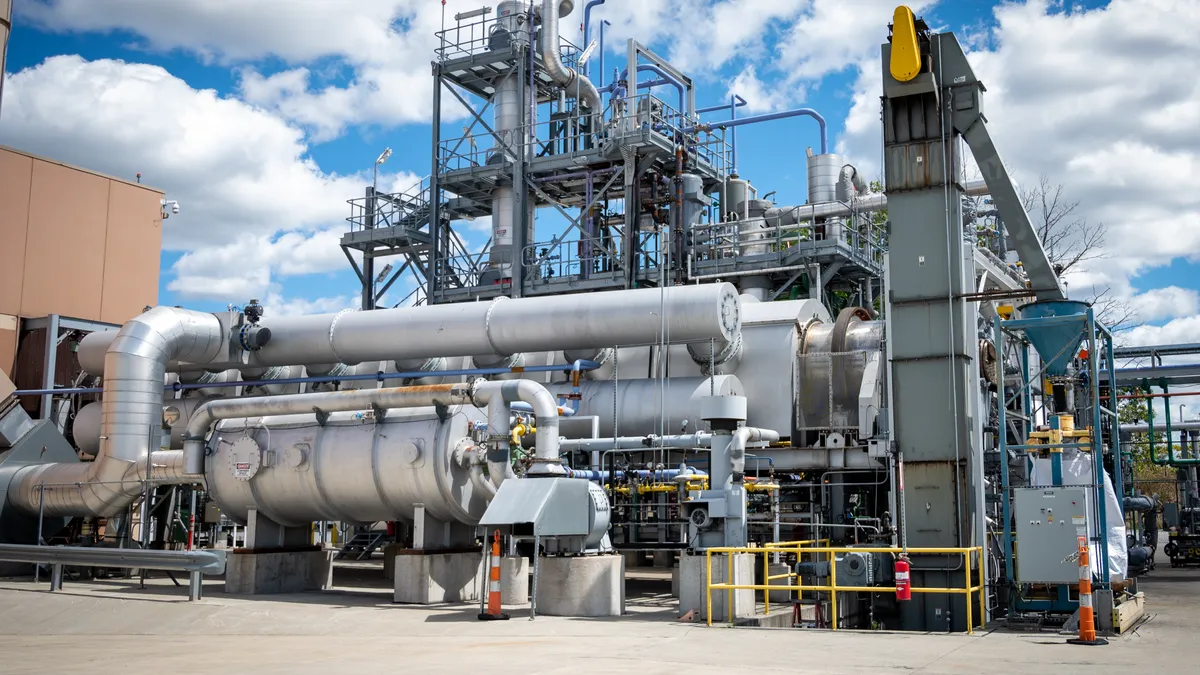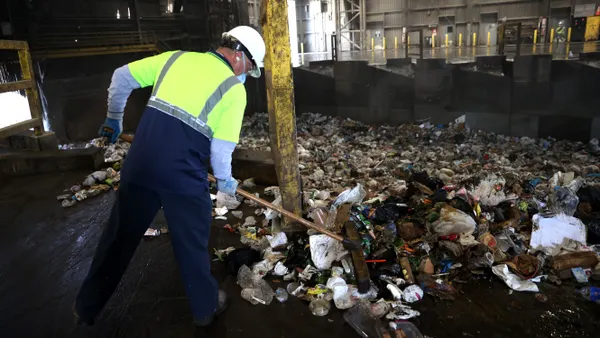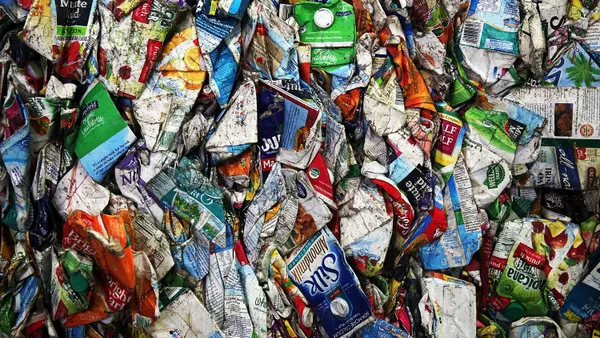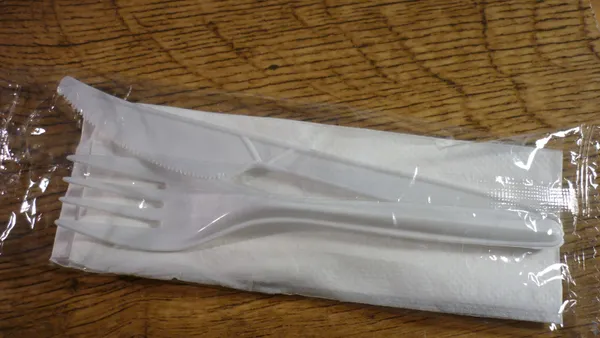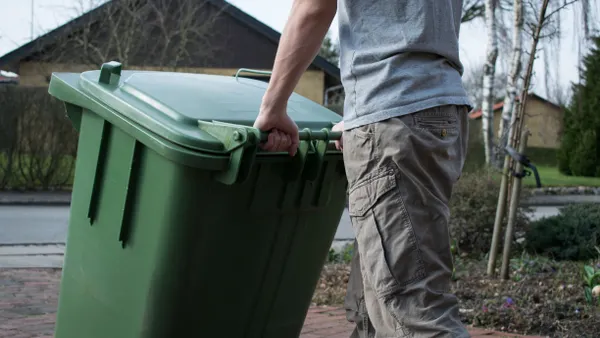Dive Brief:
- Alterra Energy has withdrawn its proposal to build a chemical recycling facility in Sugarloaf, Pennsylvania. The project called for processing up to 189 million pounds of plastic a year and converting it into a “synthetic oil for the manufacturing of new plastics and other valuable products.”
- In an August 8 letter to the Sugarloaf Township Board of Supervisors, Alterra said it was “no longer able to pursue development” on a chosen parcel of land due to the landowner’s decision to market the land to a data center developer instead. The chemical recycler says it will continue to “monitor land opportunities within the surrounding area.”
- Environmental groups such as Beyond Plastics, Luzerne County Community Action Coalition, Save Our Susquehanna and others celebrated the project's withdrawal from the proposed location, saying the plant would have caused air pollution, snarled traffic and put strain on the surrounding environment.
Dive Insight:
Alterra already operates one chemical recycling facility in Akron, Ohio. The Sugarloaf project would have been its second facility.
Pennsylvania, along with neighboring Ohio, has seen notable interest from chemical recyclers in recent years. Projects from several companies are in various stages of funding, permitting and construction despite local opposition from grassroots groups.
Yet both Pennsylvania and Ohio have recently passed laws to reclassify chemical recycling as a manufacturing process instead of waste management. It’s a move proponents say makes it easier to obtain relevant permits even as environmental groups say the reclassification allows companies to skirt necessary environmental laws.
Last year, in part due to pressure from residents, chemical recycler Encina announced it would no longer pursue a $1.1 million facility in Point Township, Pennsylvania, an area about 60 miles from Alterra’s proposed Sugarloaf Township project.
Under its original proposal, Alterra would have broken ground on the facility as early as October in order to be operational by March 2028. The company said in its withdrawal letter that it plans to “continue to evaluate potential sites in Pennsylvania, which align with our development goals and mission of solving plastic pollution.”
Alterra noted it planned to “make a significant private investment aimed at bringing longterm jobs, tax revenue, and innovative advanced manufacturing infrastructure to the region.”
Alterra said it was forced to withdraw its application due to changes in the landowner’s requirements. The company had expected to lease the land, but the landowner eventually decided to change the deal to a purchase-only requirement. The landowner felt the property’s value was “significantly elevated” due to its proximity to a proposed transmission line, making the parcel ideal to market to a data center project, Alterra said.
Yet activists said longtime opposition from local community and environmental groups also played a role in pushing Alterra out of the region.
“Pyrolysis is bad for our health and perpetuates the plastics crisis by creating more demand for harmful plastics when we should be doing the opposite,” said Sean Hoffmann, legislative director for Clean Air Action, in a news release. “We all want good jobs and economic growth in our communities, but that shouldn't come at the cost of our health and our land.”
Jess Conard, the Appalachia director of Beyond Plastics, added that local efforts in the Sugarloaf region “is proof that communities can reject false solutions and fight for the sustainable, waste-free future we deserve.”
However, Conard added that companies sometimes look at other locations after abandoning site proposals and that Pennsylvania towns must prepare to fight these projects.
The broader Ohio River Valley region has seen coordinated grassroots opposition against chemical recycling projects in recent years.
In 2024, the Ohio River Valley Institute published a report criticizing proposed projects throughout Pennsylvania, Ohio and West Virginia. The report argued that the ongoing chemical recycling proposals in the region would not deliver on their economic and environmental proposals and could create more pollution.
While Alterra’s latest project focused on Pennsylvania, the company has said it plans to “deploy its solutions globally.” It received an equity investment round in October from Infinity Recycling, LyondellBasell and Chevron Phillips Chemical.
In May, Alterra announced a pilot project that produced 9.5 tons of plastic pyrolysis oil from end-of-life plastics at its Akron facility, which was processed at Viva Energy’s Geelong Refinery in Australia.
The pilot was intended to help Viva Energy to “validate the processing of soft plastics pyrolysis oil” at the Geelong Refinery, said Valerio Coppini, Alterra’s CCO, in a May 15 news release. “We see this as an important step in bringing scalable, sustainable plastic recycling to Australia.”
Alterra has also partnered with a French engineering company to license Alterra’s proprietary technology and sell modular plant designs aimed at helping other chemical recyclers build their own plants on a faster timeline with lower capital costs.



